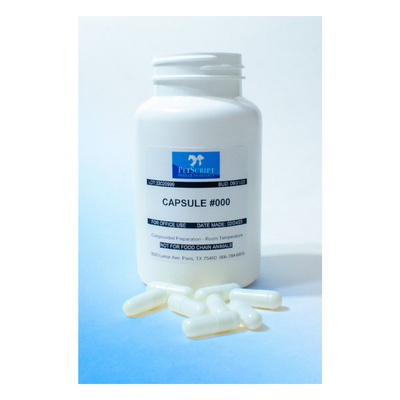Comprehending the Advantages and Uses of Fenbendazole in Veterinary Medicine
Fenbendazole has actually established itself as a key anthelmintic in vet medicine. Its capacity to target various parasitical infections makes it a valuable tool for vets. The medication's system interrupts vital mobile procedures in bloodsuckers, causing reliable therapy results. Nonetheless, its safety and security account varies between types, requiring mindful factor to consider in its usage. Understanding these dynamics can clarify fenbendazole's wider effects in veterinary care and continuous study into its possible past traditional applications
System of Activity of Fenbendazole

Usual Parasitical Infections Treated With Fenbendazole
A range of parasitic infections are efficiently treated with fenbendazole, making it a functional choice in vet medicine. This anthelmintic representative is especially effective versus nematodes, consisting of roundworms and hookworms, which frequently influence canines and felines. It is additionally utilized for the treatment of cestodes, such as tapeworms, providing a broad range of activity versus both kinds of intestinal bloodsuckers. Additionally, fenbendazole is helpful in managing infections created by protozoa, particularly Giardia, which can cause intestinal distress in pets. Its effectiveness encompasses dealing with specific lungworms in pooches and felines, resolving respiratory health worries linked to these bloodsuckers. In general, fenbendazole's capacity to target numerous parasitical species makes it a useful tool in vet method, making sure the wellness and health of pets influenced by these common infections.
Safety and security and Efficacy in Different Animal Species
The safety and effectiveness of fenbendazole vary amongst different animal species, underscoring the value of species-specific considerations in veterinary medicine. In pooches, fenbendazole is typically well-tolerated and effective against a range of stomach parasites, including roundworms and hookworms. For felines, however, its use is less typical and might call for mindful application due to prospective damaging reactions.
In animals, such as cattle and sheep, fenbendazole demonstrates efficiency versus numerous endoparasites, adding to boosted health and performance. The pharmacokinetics and possible side effects can differ considerably in between varieties, requiring cautious examination by veterinarians.
Horses additionally respond positively to fenbendazole, especially for treating strongyles and ascarids, though dose and administration routes must be customized to their one-of-a-kind physiology. Recognizing these differences is crucial for optimizing treatment end results and ensuring animal welfare across diverse types.
Management and Dose Standards
Appropriate administration and dose guidelines are important for optimizing the therapeutic results of fenbendazole while lessening prospective negative effects. The dose generally varies depending upon the species being dealt with, the particular problem, and the formula of fenbendazole made use of. fenbendazole 222. For canines and pet cats, a common dose is 50 mg/kg body weight, administered daily for three successive days, but veterinarians might readjust this based on individual health and wellness evaluations
It is necessary to provide fenbendazole with food to boost absorption and reduce intestinal trouble. The drug is offered in different kinds, consisting of granules and paste, permitting flexible administration options. Checking the animal's action throughout and after treatment is suggested to verify efficiency and security. In addition, vet support is crucial to identify the ideal period of therapy based on the sort of parasitical infection being resolved, guaranteeing perfect results for the pet's wellness.
Future Point Of Views and Research on Fenbendazole
Research on fenbendazole proceeds to progress, focusing on its potential applications past traditional antiparasitic uses. Current research studies have explored its efficiency in dealing with different forms of cancer, particularly in veterinary oncology. Preliminary data suggest that fenbendazole may hinder the growth of tumor cells and improve linked here the effects of various other chemotherapeutic agents.
Scientists are investigating its function in managing intestinal disorders in animals, highlighting its anti-inflammatory properties. The flexibility of fenbendazole for different varieties questions about its safety and security profiles and ideal application regimens in varied populations.
As interest expands, there is a demand for detailed professional tests to establish evidence-based standards for these novel applications. Future study may additionally explore the mechanisms behind fenbendazole's impacts, possibly paving the means for ingenious therapeutic methods in veterinary medication. The recurring expedition of fenbendazole could considerably boost therapy choices for numerous vet conditions.

Often Asked Concerns
Is Fenbendazole Safe for Pregnant Animals?
The security of fenbendazole for pregnant pets stays unclear. While some researches suggest marginal risk, veterinarians normally advise care and typically encourage against its use while pregnant unless the benefits clearly surpass potential dangers.
Can Fenbendazole Be Utilized in Animals?
Fenbendazole is commonly made use of in livestock to deal with different parasitic infections. fenbendazole 444. Its effectiveness against stomach worms makes it a beneficial anthelmintic, adding to improved health and productivity in animals increased for food and fiber
What Are the Adverse Effects of Fenbendazole?

The adverse effects of fenbendazole may consist of stomach disruptions, lethargy, and allergies. In rare situations, extra extreme reactions might occur, demanding careful monitoring and assessment with a veterinarian throughout treatment.
Just How Does Fenbendazole Contrast to Other Dewormers?
Fenbendazole uses broad-spectrum find here effectiveness versus numerous parasites, usually comparing positively to other dewormers. Its special system targets different life phases, making it efficient, while normally offering a positive security profile contrasted to alternatives offered on the marketplace.
Can Fenbendazole Be Used for Treating Cancer in Pet Dogs?
The capacity of fenbendazole in dealing with cancer in family pets has actually gathered rate of interest. Initial studies recommend it might inhibit cancer cell development, yet further research is necessary to confirm its efficacy and safety and security in click for more veterinary oncology.